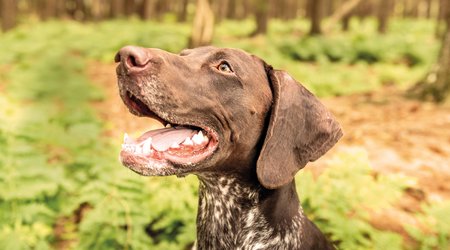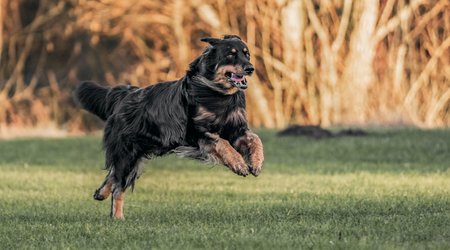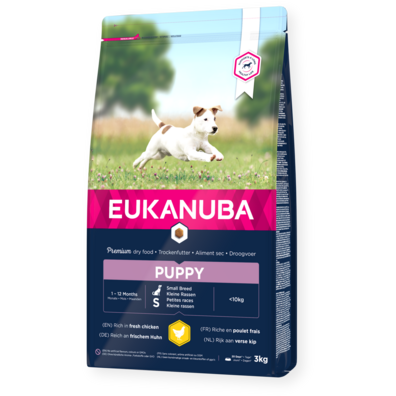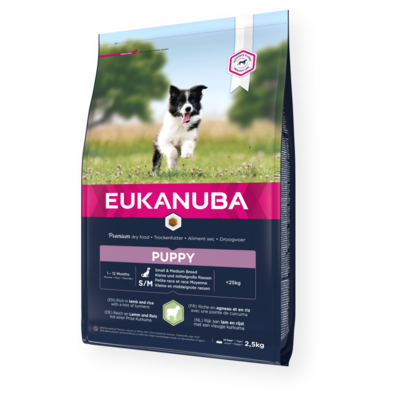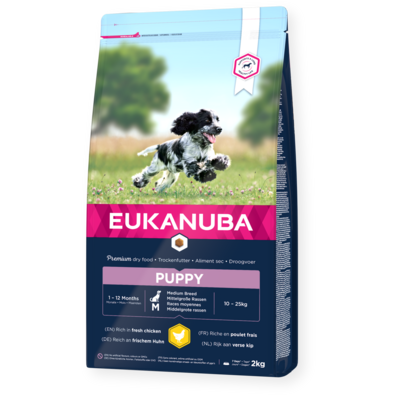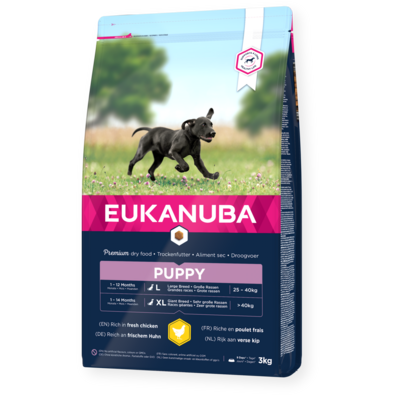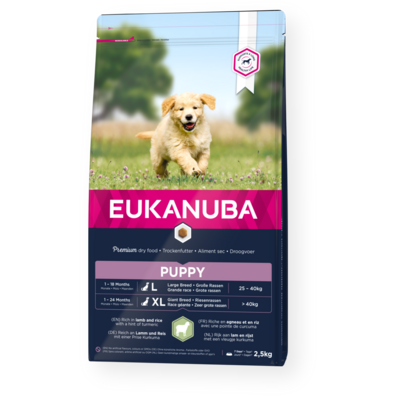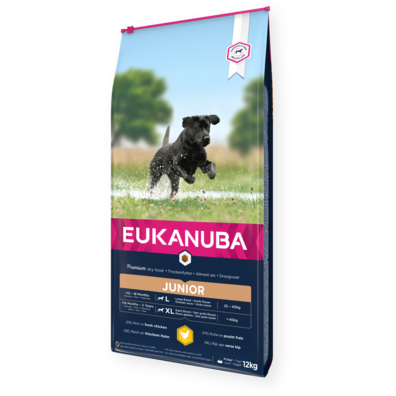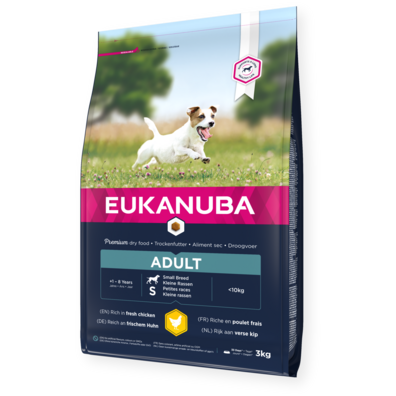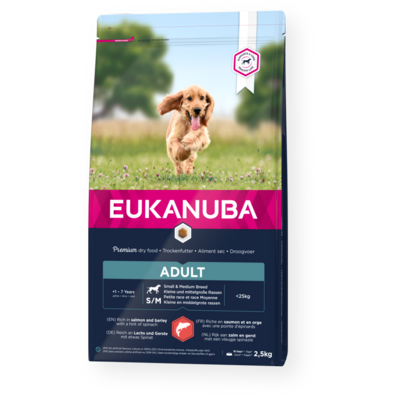Keeping your dog's teeth healthy
Taking care of your dog's teeth is a crucial part of keeping them in optimal body condition. Around 85% of dogs have some dental problems by the age of three years1, so taking care of their teeth is just as important as caring for the other visible signs of health.
Content

Dental care for puppies
Feeding your dog dry food will help keep their teeth clean but it’s very important that you help your dog, even at the early stages of puppyhood, by getting them used to the idea of teeth brushing. Puppies start to develop their adult teeth at around six months old, but getting them used it now will benefit you both later.
Start gently, by simply getting them relaxed with the process and the close contact. You don’t even need to use a doggie toothbrush or toothpaste at this stage, just use your fingertips to gently massage their teeth and gums so they grow familiar with the contact and sensation. Once used to this, you can progress to the toothbrush and then to adding a special dog toothpaste. Never use human toothpaste as most contain fluoride that is toxic to dogs. Try to clean your dog’s teeth each day but if not aim for a couple of times a week as this will still help keep your puppy’s mouth healthy.
Learned early, this daily brush will prove no problem at all for your dog to adapt to as part of their normal routine and will form a sound basis for healthy teeth and gums as they grow.
Dogs getting their adult teeth
Most puppies lose their milk teeth between three and six months of age and during this time they have to live with some discomfort, much like babies do when they’re teething. Chewing is your dog’s way of alleviating pain, so try to offer plenty of chew toys, which can help.
As your puppy reaches six months of age their 28 milk teeth should have been replaced with a full set of 42 adult teeth. Your vet will check that all the milk teeth have gone and the adult teeth are coming through during one of the regular puppy check-ups.
Looking after their adult teeth
Like us, dogs get the same plaque and tartar issues caused by bacteria that can lead to gum disease bad breath, tooth loss, eating difficulty and other potentially serious health conditions. and bad breath. Plaque is a soft, cream coloured film containing bacteria that forms on teeth and below the gum line. It becomes tartar when minerals in the saliva interact with it forming hard yellow or brown deposits.
The best way to avoid dental disease is to prevent it; it's as easy as that. Preventative steps performed at home are vital for ensuring your dog has healthy teeth.
We suggest following the 3 D's of Dental Care:
- Daily Brushing – Brushing your dog's teeth is a very effective way to remove plaque from your dog’s gum line. Ideally this should be done every day, but if that’s not possible then at least once a week.
- Dental Check – We recommend a dental check by your vet once every 6-12 months.
- Dental Diet – Feeding a dry food diet is better than a wet food one as the crunchy kibble helps to scrape away and dislodge plaque. There are also chews and treats on the market which can help keep your dog's teeth clean.
EUKANUBA foods* feature a special kibble shape together with unique DentaDefense to help keep your dog's teeth clean & healthy.
References:
1 WIGGS RB. PERIODONTAL DISEASE IN AGE CATEGORIES OF DOGS AND CATS. 11TH AM VET DENTAL FORUM, DENVER, CO, USA, 1997: 143-144
*EXCLUDES EUKANUBA PUPPY FOOD
